By Michael Alford
“Getting a job,” you say, “That seems an awful long way away for me; I’m still in education.”
This may be true for many of the teenagers and young adults using VICTA’s services, but it comes on faster than you think. Starting your first job hunt can be a harsh jolt as reality sets in. Employers, just like employees, have their own interests and expectations, and convincing them that you have all the skills to succeed, not just the academic skills, can be a real challenge at the best of times. And having a visual impairment doesn’t make things any easier.

Many people don’t know what it is like to work with a VI person and much less in the workplace. In addition to the obvious question, ‘can this person do the job to the required standards?’ other questions will be asked. Can this person do the job at all? What support will they need? How much will it cost to make the necessary adjustments? How should I treat them?
Such questions won’t always be asked outright. The VI job seeker needs to know and be able to answer them without being asked. A clear plan of action is needed to convince both employer and even the VI employee that they can succeed in the workplace. This article aims to get blind and partially sighted young people started on planning their workplace accessibility strategies, and also demonstrate to both VI and non-VI alike that visual impairment needn’t be a barrier to a successful career.
Getting support
While many blind and partially sighted people of working age reportedly linger on unemployment lists, many successfully gain and retain employment, even with deteriorating sight levels. The difference lies mainly in the amount of support made available. Arguably, there are very few jobs that the visually impaired cannot do and these are mainly those requiring medical examinations, such as driving or heavy manual labour.
A glance through the RNIB Report entitled The Jobs Blind and Partially Sighted People Do published in 2015, reveals some surprising facts about the range of roles and sectors available to the visually impaired. Assisted by ever sophisticated technology and support services, it is not uncommon to find the visually impaired working in the scientific field, as healthcare professionals, within IT and finance as well as the more expected administrative and clerical roles.
A number of charities and organisations provide advice and support to the visually impaired about getting into work. They range from charities catering for all disabilities such as Scope, to those catering specifically for those with sight loss, for example RNIB and even a few focusing on disabilities in the workplace (Blind in Business).
A few of the more important things to know are listed below.
- All employers are legally obliged to make reasonable adjustments for disabled employees. This covers a wide variety of support including basic specialist equipment such as assistive software, large print keyboards and magnification and/or lighting equipment. However, this obligation is only valid if they are informed of any disabilities that might require reasonable adjustments before the employment contract is signed.
- For requirements beyond reasonable adjustments, the UK government offers an ‘Access to Work’ scheme, which provides finance for those adjustments which are not considered reasonable, such as a sighted assistant, or transport to and from work if public transport is impractical or impossible (the recipient would have to pay a contribution towards this).
- RNIB offers a VI specific Work Place Assessment. This is an assessment of the workplace and requirements of the role by a support professional, who can recommend equipment and support services based on the nature and level of the employee’s sight.
- Advice and support on job searching, applications, CVs and interviews is provided by a number of organisations. I believe such support is invaluable without even considering the impact of a visual impairment.
The ‘user experience’
So, what is it like at ground level for those with sight loss navigating the many challenges of a career? A recent desktop survey conducted for the purpose of this article identified a wide variety of strategies used by VI employees to cope and succeed in the workplace. As a cautionary note, responses have been limited to those in contact with either VICTA or those involved in its work, so are not necessarily indicative of the wider UK VI population, but it is hoped that they give a good idea of the topic in question.
In terms of support at work, given the wide range of support that reasonable adjustments covers, many of those VI employees surveyed reported that they have managed to cope on the support offered by their employer alone. Having said that, Access to Work does have a significant role to play in providing support beyond what is expected of employers, especially around travel. In addition, a few respondents commented on the need for creativity and flexibility when accessing jobs that might otherwise seem impossible for those with sight loss.
Many visually impaired people find themselves working in the public or non-profit sectors. This might be explained by the fact that these sectors are more focused on delivering value to society and are thus more accommodating of those with specific needs. For those within the private sector, larger organisations offer the best technical support, as arguably they have more resources to make the necessary adjustments. Smaller organisations came out top for emotional support.
While it would be fair to conclude that there are opportunities for visually impaired workers in all sectors, a number of respondents stressed the importance of discussing a visual impairment early in the recruitment process. They suggest that this helps with interview arrangements and ensures that the expectation of reasonable adjustments is fixed before any contract is signed. However, this is a highly contentious issue, with some arguing that such a declaration can introduce an element of bias during the recruitment process.
As with many aspects of life, a career is what you make of it. While many people don’t always know the appropriate way to work with a VI person, most are willing to help. Having the confidence to ask for what is needed is vital. This applies both to the professional and social side of working life. Most survey respondents said that they received satisfactory support from their employers and were able to engage effectively, albeit with some assistance from colleagues, in the social side of work life.
Conclusion
The challenges of finding employment as a visually impaired person may never go away completely but with the right support the opportunities are almost as numerous as those for fully sighted people. When searching for work, I found the advice of specialist services invaluable. Especially those who understood the recruitment process and could advise me on how best to present and discuss my disability. And I would argue that those who refuse employment on the grounds of disability, or don’t make adjustments during the recruitment process, might not be the best employers to work for anyway. Do not let your visual impairment be a barrier and don’t be afraid to tell a prospective employer that you have ambition.
Do these findings reflect your own journey into to employment? We would love to hear your comments or any further advice you can share in the comments at the end of this article.
Written by Michael Alford
About Michael
 Michael was born and raised in South Africa, where he was diagnosed with optic nerve hypoplasia. He moved to the UK with family three and a half years ago and here continued his education, completing his A-levels last year. He enjoys music and is an enthusiastic drummer/percussionist and organist and has played a significant part in his school’s cultural life.
Michael was born and raised in South Africa, where he was diagnosed with optic nerve hypoplasia. He moved to the UK with family three and a half years ago and here continued his education, completing his A-levels last year. He enjoys music and is an enthusiastic drummer/percussionist and organist and has played a significant part in his school’s cultural life.
When Michael joined VICTA as an ambassador he was looking for an accounting apprenticeship and has since secured a post as a Business Administration Apprentice at Bristol City Council. Michael ultimately hopes to run his own business. Michael applied to join the VICTA Young Ambassador programme as he felt it would be an exciting opportunity to take on a different challenge and learn some new skills other than those acquired during his formal education. He hopes this will be a valuable addition to his CV and support him towards finding the right job. It also presented an opportunity for him to make his contribution to improving understanding and opportunities for the visually impaired in the workplace.
Michael hopes that his education and previous experiences will allow him to be an effective contributor to this exciting venture, and moreover, looks forward to the experience he will gain from being part of it.












Leave A Comment